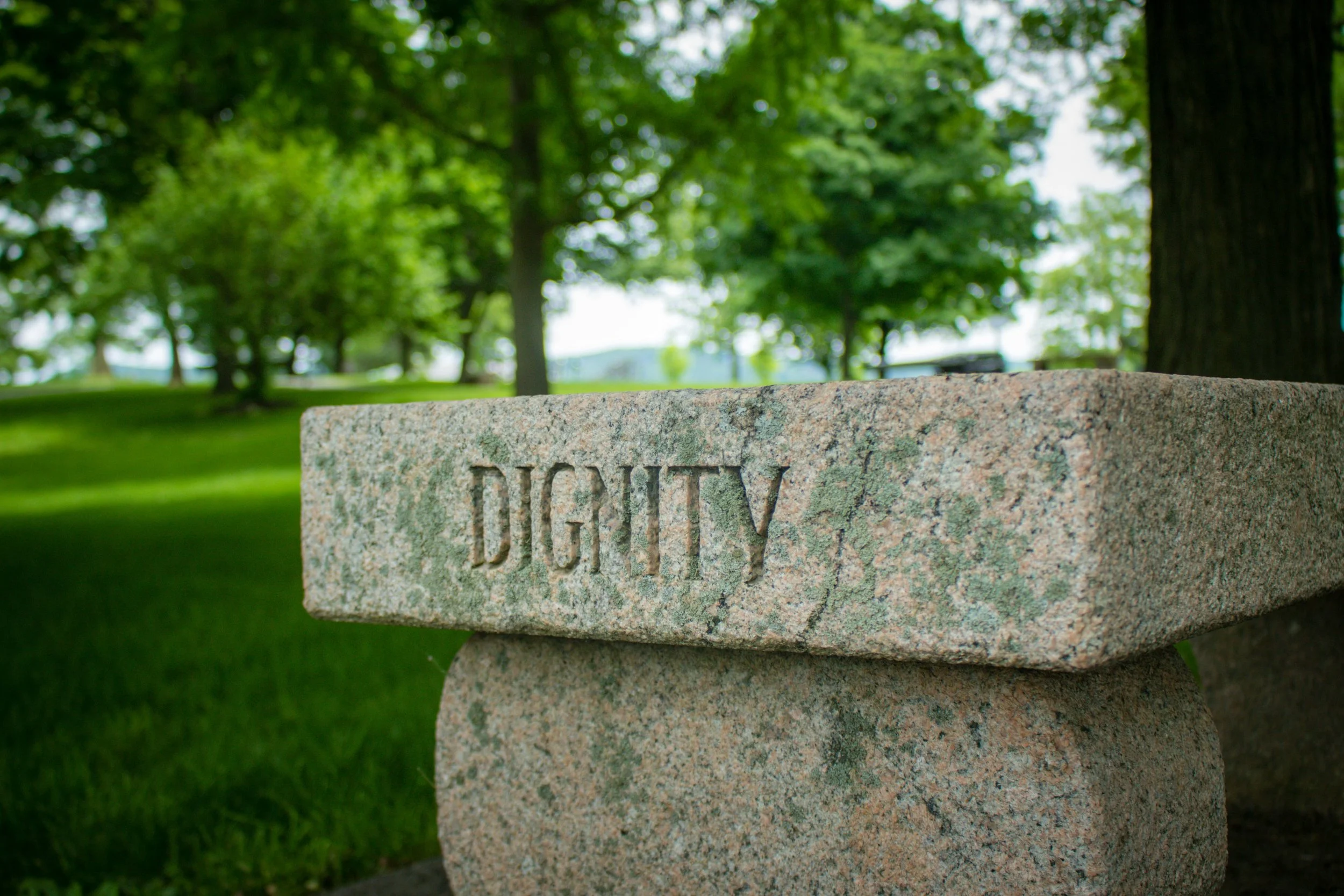Dignity in Indignation: A Philosophical Exploration
Dignity in Indignation: A Philosophical Exploration
The field of human interaction is shaped by varying degrees of moral highs and lows marked by uplifting and regrettable behaviors. Such is the inherent connection between human worth—dignity—and the emotional response to flagrant or perceived violations of such dignity—indignation. This connection manifests through ethical discourse, social movements, and personal experiences, influencing and constructing cognitive and emotional comprehension of humanity and social justice.
The words indignation and dignity share an etymological and semantic linkage through their roots in the Latin word dignus, which means worthy. The word Dignity derives from the Latin word "dignitas," which means worthiness or merit. Indignation comes from the Latin word indignatio, which is derived from indignus, stemming from indignare, meaning unworthy, connoting a subjective appraisal of unworthiness and a sense of resentment or righteous anger arising from unworthiness, injustice, unfairness, or dishonorable treatment or denial of dignity.
Semantically, both terms play pivotal roles in discussions surrounding conflict and conflict resolution. They hold a predominant and meaningful function within the theoretical framework of conflict analysis and the strategies or processes employed to resolve conflicts. Dignity is central to promoting respectful interactions as a key requirement for sustainable conflict resolution. Conflicts often arise or escalate, fueled by feelings of indignation, when dignity is perceived to be violated.
Photo credit- Dave Lowe
Dignity is the principle that all human beings hold inherent value, the intrinsic worth that all individuals possess regardless of status, wealth, race, or any other social distinction. This worth cannot be granted or revoked through external actions or circumstances as an innate and sacred aspect of human existence.
The indignation provoked by the atrocities leading to and resulting from the second world war produced the United Nation’s Universal Declaration of Human Rights (1948) which enshrines dignity as a fundamental, ontological principle, forming the basis for legal and moral equality irrespective of social, cultural, or biological differences. From this standpoint, dignity, being both personal and collective, demands recognition and protection within societal structures.
Since the days of Roman and Greek philosophers, Cicero and Aristotle, indignation continues to function as a potent rhetorical tool to incite judgment and persuade audiences by appealing to and feeding emotions rooted in moral and social outrage. Cicero's conception emphasizes the strategic deployment of indignation to mobilize the audience's sense of justice and moral rectitude, often framing grievances as violations of some order to evoke anger. Thus, Aristotle classifies indignation as a passion that can be manipulated deliberately by contriving perceived injustices, emphasizing moral failings of opponents or highlighting violations of shared virtues to conjure targeted emotional responses. Such structured discourse serves to intensify indignation which mobilizes support and delegitimizes adversaries.
Amartya Sen, in The Idea of Justice, differentiates between productive indignation that leads to reform and blind rage that perpetuates cycles of harm. Sen argues that recognizing dignity—even in one’s adversaries—is essential for constructive dialogue. A society that acts on indignation without considering dignity risks eroding the very justice it seeks. Axel Honneth, in The Struggle for Recognition, argues that indignation is central to struggles for recognition and social justice movements that expose the absence or violation of dignity. Martha Nussbaum, in Upheavals of Thought, explores the role of indignation in moral reasoning, suggesting that moral outrage can be a force for ethical improvement.
Indeed, throughout history, indignation has been a catalyst for change. Civil rights movements, feminist struggles, labor unions, and anti-colonial revolutions have all been driven by indignation at denied dignity. The women’s suffrage movement, born out of women’s indignation over political disenfranchisement led to suffrage movements as Susan B. Anthony and Elizabeth Cady Stanton channeled their resentment onto dignified activism culminating in the 19th Amendment (1920) such that women in the US can vote today. Mahatma Gandhi’s truth and nonviolent resistance that was rooted in dignified indignation of British colonial rule, produced civil disobedience campaigns that dismantled the oppressive system resulting in India's independence in 1947. Some of the most profound demonstrations of indignation guided by dignity in recent memory come from Martin Luther King Jr.’s who, in his Letter from Birmingham Jail, articulates indignation as a justified response to racial injustice, and a moral stance rooted in dignity. Nelson Mandela’s struggle against apartheid, fueled by indignation at the racial discrimination and the denial and flagrant violation of the dignity of Blacks in South Africa, transformed indignation, righteous anger guided by ethical principles into reconciliation rather than destruction.
In the grand moral landscape of human society, indignation is the guardian of dignity. When dignity is violated, indignation denounces and condemns it, urging individuals and societies to rectify the wrong. Understanding dignity without indignation risks ignoring the real struggles individuals face when their worth is disregarded. Conversely, indignation without dignity risks losing sight of moral principles. Both dignity and indignation must exist in concert in any dialogue and especially in conflict resolution, working together to uphold justice and the inherent value of every person. The hour calls for indignation rooted in dignity and directed toward meaningful and constructive action to neutralize the rampant chaos and destruction from the systemized indignation of the day that is so devoid of dignity.
